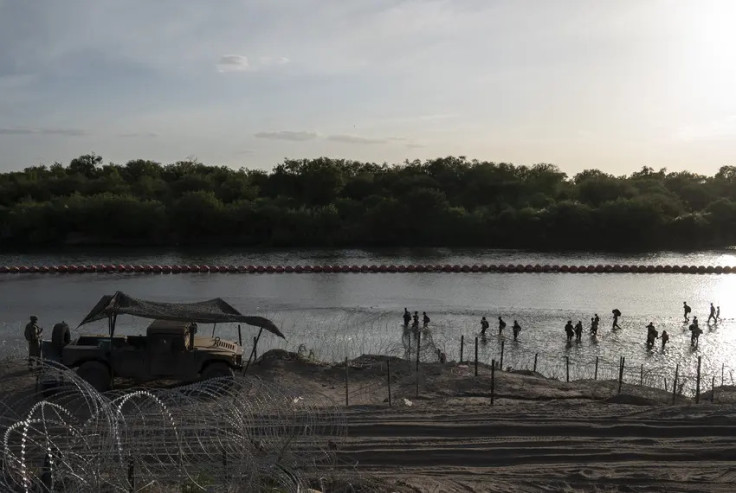
Whether Texas' new immigration law, which allows state authorities to arrest and deport immigrants crossing the border illegally, will eventually be allowed by the courts is still an open question.
However, a report by the Texas Tribune listed a series of logistical challenges that law enforcement would face when trying to implement it, even for those who support SB4, as the bill is known.
The outlet mentioned a lack of confinement space and resources to hold apprehended migrants, as well as the long distances many would face to return them to legal points of entry to the country.
To illustrate the point it mentioned the case of Terrell County Sheriff Thaddeus Cleveland, whose jurisdiction includes 54 miles of the U.S. southern border. Cleveland told the outlet that he fully supports the law, but reality on the ground is that his jail can hold seven people and the nearest point of entry is hours away. Considering that the law would apply to the state's vast territory, those logistical challenges would only grow in counties that are further up north.
So far, no one has been arrested under the law, which was briefly in effect this week after the Supreme Court lifted a stay, but was put on hold hours after following a decision by the 5th U.S. Circuit Court of Appeals, which is currently holding hearings to determine whether to allow for the law to be implemented or not.
On Wednesday, its members appeared to be divided on their assessment of its viability. According to The New York Times, two of the three judges spoke after hearing the parties and they "appeared to be at odds." "One appears skeptical of the Texas migrant arrest law, and another has sharply questioned the Justice Department lawyer. The third, judge Irma Carrillo Ramirez, who was appointed by President Joe Biden, has not spoken."
On Texas' side, state Solicitor General Aaron Nielson said that the state "has a right to defend itself," and added that the court acknowledged that "sometimes those associated with the cartels cross over the border with malicious intent."
Nielson's core argument is that SB4 mirrors federal law. When told that states don't have police power to remove people from the U.S., he said that while that is "certainly true," what the law does is "to get the order from the judge, and the person is taken to the port of entry."
Justice Department lawyer Daniel Tenny, in contrast, rejected the argument that the government isn't properly enforcing immigration laws. He added that the Supreme Court has "consistently recognized" that immigration enforcement "is reserved for the national government."
The judges didn't issue a ruling from the bench and it's unclear when they could do so.
Senate Bill 4, as the proposed law is known, has been considered by opponents the most dramatic attempt by a state to police immigration since an Arizona law more than a decade ago that would have allowed police to arrest people for federal immigration violations, often referred to as the "show me your papers" bill."
Mexico's Ministry of Foreign Affairs announced that the country will participate as Amicus Curiae before the Fifth District Court of Appeals. The aim is "to provide relevant information on the law's impact on the Mexican and Mexican-American community, as well as its effect on relations between Mexico and the United States."
© 2024 Latin Times. All rights reserved. Do not reproduce without permission.







